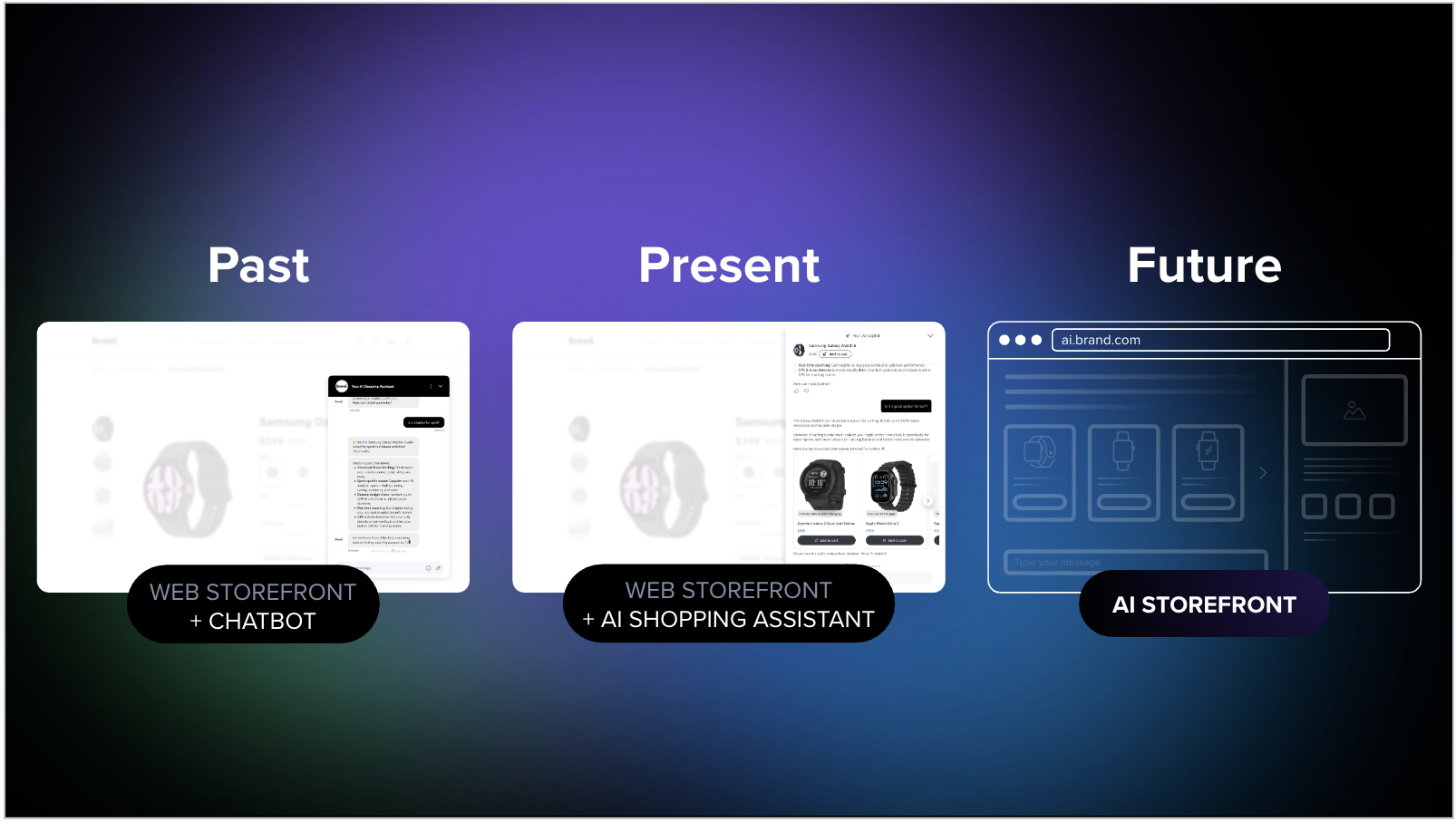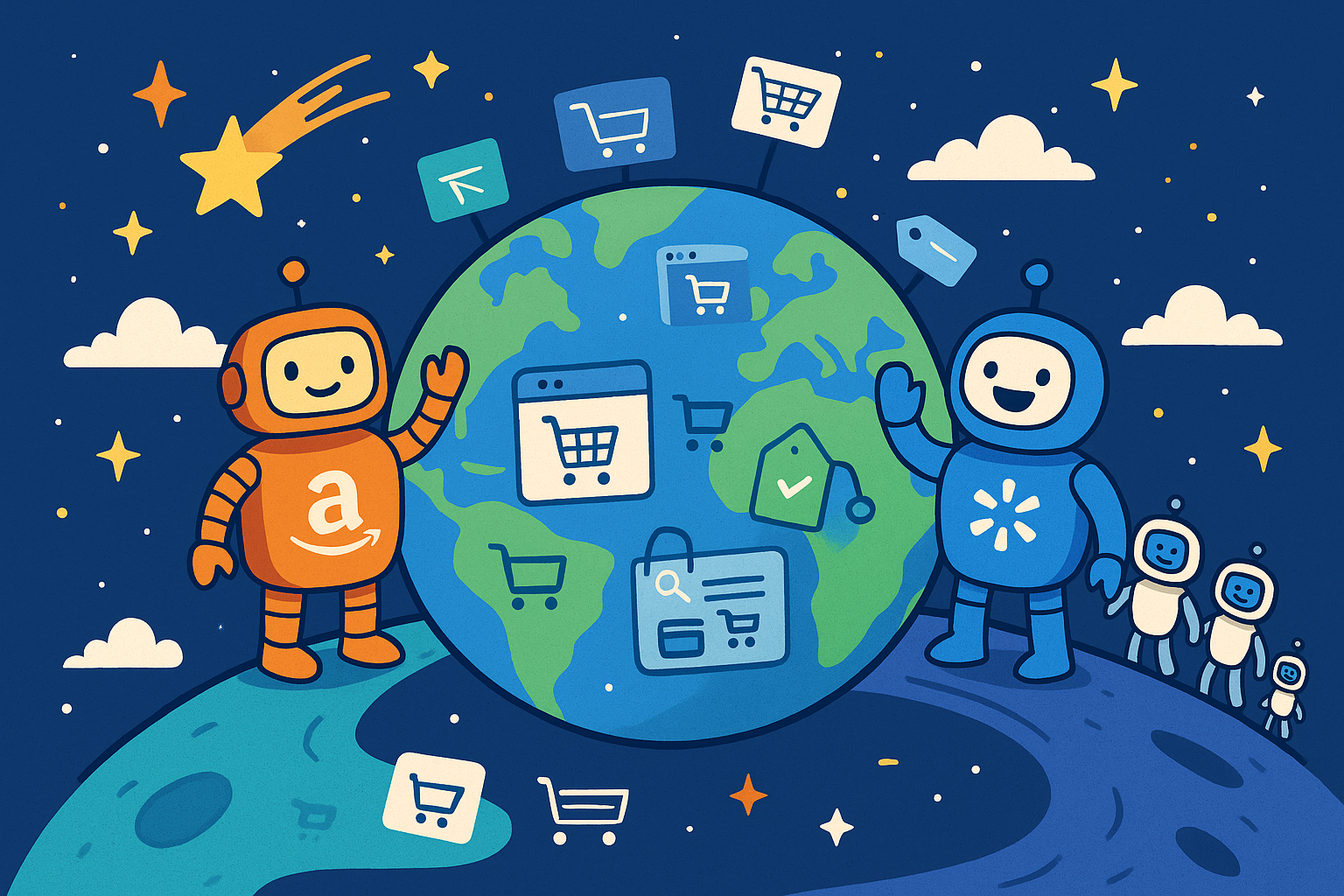The Experience Economy: A Source of Opportunities for Brands
iAdvize

Two decades ago, B. Joseph Pine II and James H. Gilmore forecasted that the agrarian economy, the industrial economy, and then the service economy, would be followed by the experience economy¹. Long before the birth of Facebook and Instagram, the two authors had identified the revolution we are currently experiencing: consumers no longer buy products. They buy the best experience they can find. And iconic brands—Nike, Lego, Nespresso, Red Bull, Samsung—have already integrated this philosophy into the heart of their business model.
The End of the Product Era
Our buying habits have drastically changed with the advent of online shopping. Is a pair of sneakers too expensive? Dissatisfied visitors can always compare offers, prices, and easily switch from one website to another. This increased transparency creates what Accenture calls the “switching economy,” which is characterized by a dynamic, accessible and continuous buying journey, and the gradual erosion of customer loyalty².
This trend has prompted websites to adopt a commercial approach based on transactions: offering the best product at the best price, promoting the purchase in just a few clicks. But this product-centric strategy is proving to be limited. The median conversion rate of website visitors turned into customers has reached a ceiling of 2.35% for eCommerce sites³. With 49% of the United-States market shares, Amazon has taken over the product economy⁴.
But an unprecedented opportunity is arising. Beyond the product offer, experiences take on key importance in the buying decision.
Experience is the New Product
A study published in the summer of 2017 by the Harris firm for Eventbrite revealed that 78% of American Millennials would rather spend money on an experience or event than a product⁵. This phenomenon is explained by several trends:
- A decrease in purchasing power: the Millennials have much less wealth than their parents, and also have relatively high debts;
- Environmental concerns are taking center stage and encouraging the de-consumption of physical products;
- Ethical concerns about the conditions under which cheap products are produced.
Have you found a new restaurant you would like to recommend? Or a headset with a better sound than you have ever heard before? In the social media age, nothing is easier and more spontaneous than sharing a great experience in words, photos, or videos. Just as bad feedback can be very quickly spread. Brands no longer have a monopoly over their communication, and they know it. This phenomenon puts customer experience, “the way customers perceive their interactions with a company”⁶, at the center of their success strategies.
An Unprecedented Opportunity for Brands
Airbnb, Uber, N26, Revolut, Deliver, Blablacar, etc., all these must-have brands have conquered their market by offering a superior digital experience, and have been rewarded with explosive growth in return. An Ipsos study conducted in the United-States reveals that experience is the number one factor (66%) in choice or brand loyalty⁷. PwC’s research has shown that great experiences are valued with up to a 16% price premium on products and services⁸.
This means that brands have everything to gain by providing consumers with:
- A rich and authentic experience: To talk about it and show it, in correlation with the uses of social media
- A human and personalized experience: 75% of buyers would like to have more human interactions with companies⁸
In the experience economy, this transformation is crucial to gain market shares. Embrace this new age by placing your customers at the heart of your strategies.
¹ B. Joseph Pine II et James H. Gilmore, Welcome to the Experience Economy, 1998
² Accenture, Customer 2020: are you future-ready or reliving the past?, 2019
³ Wordstream, What is a good conversion rate?, 2019
⁴ Tech Crunch, Amazon’s share of the US e-commerce market is now 49%, or 5% of all retail spend, 2018
⁵ Eventbrite, Eventbrite Research: Millennials Fuel the Experience Economy Amidst Political Uncertainty, 2017
⁶ Forrester, Customer experience defined, 2010
⁷ Ipsos, Le digital a changé la donne de l’expérience client, 2017
⁸ PwC, Experience is Everything: Here’s How To Get It Right, 2018

.png)
.png)





